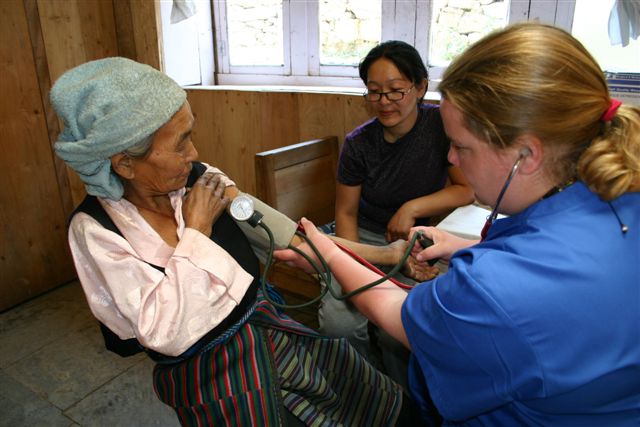
Medical Elective Ethics
MEDICAL ELECTIVE ETHICS
Successful medical electives exist where a long-term developmental perspective is a clearly identified aspect of the experience. This is partly because the ‘gap year’ industry is just that, an industry, and it lacks a pedagogy for global health. It often has a simplistic view of development and an incorrect representation of the ‘developing world’.
Any company offering a medical elective should be aware of the latest thinking on development from leading authorities like the Overseas Development Institute and the United Nations, especially with the current debate on the Millennium Development Goals and what will happen when they expire in 2015 and the next stage of globalization begins.
The qualities of a ‘global’ Doctor as defined by the World Health Organisation are: being community orientated, reconciling individual and community needs and initiating actions on behalf of the community. For this, they need to have an awareness and knowledge of health promotion, illness prevention, population needs, environmental and social factors in disease, and public health medicine.
A well run medical elective with ethics towards funding and equality and health education has the power to be a positive tool for development and can help to create great Doctors. But there should be considerable thought given to the nature of the elective, the relationships it creates with local health providers and the ‘supply chain’ of health in diverse environments, and of course the potential problems it can cause.
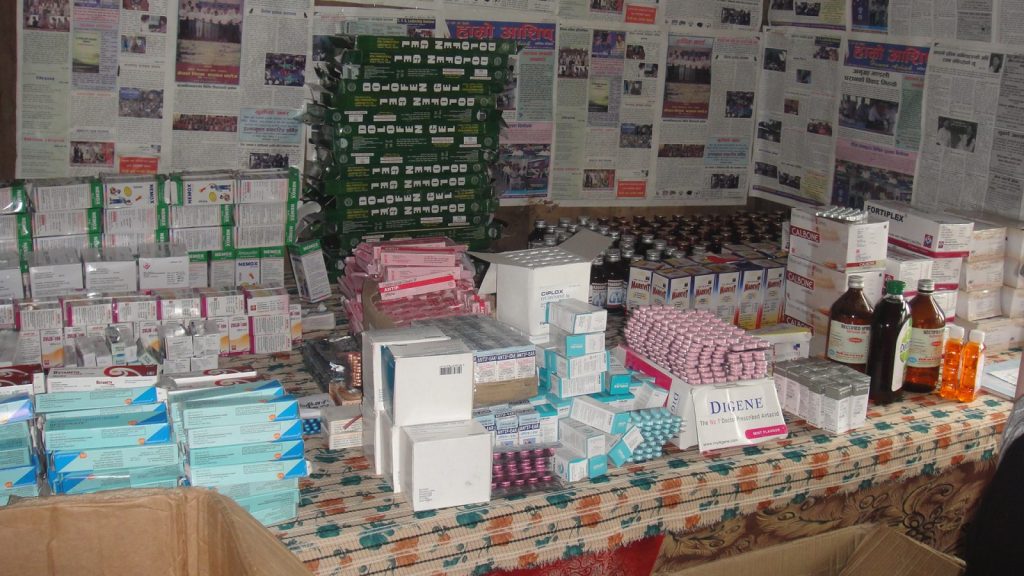
Like any ‘responsible’ tourism, it should be underpinned by awareness and knowledge, professional advice and ethical integrity. In other words, it’s not just a holiday.
Unfortunately, there is a historical and cultural imperative which is uncomfortable to consider, because western societies taking advantage of developing nations as a training ground for their own health professionals runs the risk of becoming exploitative.
While it is important for medical students to see diseases and conditions rarely seen nowadays in developed nations, as well as experience different cultural and organizational settings, what happens if those benefits in training are not transferred back to patients in the developing world? The bigger picture of the international elective experience could ultimately be thought of as self-serving and a form of colonialism.
On the ground, practising ethics for medical students on an elective in a developing country can be equally as discomforting. Poor supervision creates an ineffective environment which could impose burdens on local facilities and result in unmet expectations on all sides. The role of the visitor who is expected to intervene and ‘see patients’ has implications on legal grounds and exceeds moral boundaries which students can find distressing. Clearly, patients have the right to know they are being cared for by students, and this begins with the relationship that the elective provider has with the medical institution.
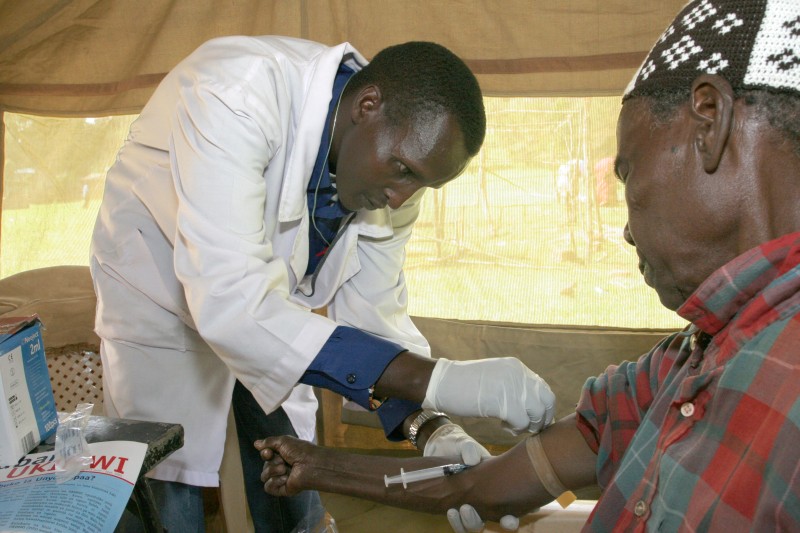
Some elective providers are NGOs, or they work with such partners in developing countries, and it is important to understand how these organizations are often viewed by Health Ministries which are tasked to provide a national health programme with severe workforce shortages, and often a chronic lack of investment, infrastructure and often even governance. In such an environment, NGOs with foreign funding often present a more attractive option for local health professionals, offering higher salaries and better employment packages.
If the NGO is not working in collaboration with the national and local medical authorities then the danger is that it creates a localized area of ‘health wealth’ with specialized equipment which serves limited populations. The result can be a parallel health system that is inequitable and creates a lot of tension. A medical elective which funds this sort of idealized project might actually be perpetuating resentment.
Done properly, a medical elective should work with an NGO that complies with the Code of Conduct for Health Systems Strengthening.
The Code is “a response to the recent growth in the number of international non-governmental organizations (NGOs) associated with an increase in aid flows to the health sector. It is intended as a tool for service organizations – and eventually, funders and host governments. The code serves as a guide to encourage NGO practices that contribute to building public health systems and discourage those that are harmful. The document was drafted by a coalition of activist or service delivery organizations, including Health Alliance International, Partners In Health, Health GAP, and Action Aid International”.
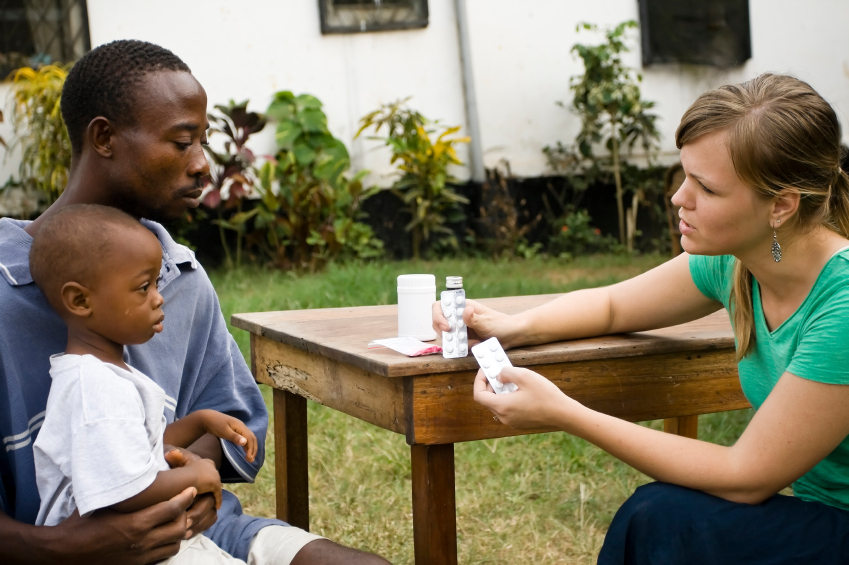
Discussing the benefits of medication and helping families understand their options for treatment.
THE MAIN PRINCIPLES OF THE CODE ARE THAT NGOS:
- will engage in hiring systems that ensure long-term health system sustainability
- will enact employee compensation practices that strengthen the public sector
- pledge to create and maintain human resources training and support systems that are good for the countries where they work
- will minimise the NGO management burden for ministries
- will support Ministries of Health as they engage with communities
- will advocate for policies that promote and support the public sector
Clearly, the ethics of a medical elective require thought and care before signing up with a provider. It is important to ask questions about the integrity of the funding, and a good start is to look at the criteria in the Fair Trade Volunteering website.
Go into these experiences with open eyes and an informed opinion; discuss with the provider and your supervisor what is expected and how you can be most helpful. Do relevant research and do your part for developing global understanding by using your experience to benefit future students of exchanges or electives.
The following links provide documents to guide you in planning and preparing your elective, and also in looking at the ethics of medical electives
For more information on this subject please visit the following pages:
Electives for Medical Students: Membership guidance note – medical students
The Electives Network provides information and advice on medical electives throughout the world
An informative article entitled Voluntourism: the downsides of medical missions
MEDICAL ELECTIVE RESOURCES
PROFESSIONAL INSURANCE
MDDUS is a medical and dental defence organisation offering access to professional indemnity and expert medico-legal and dento-legal advice for doctors, dentists and other healthcare professionals throughout the UK.
MPS is the Medical Protection Society providing legal defence and ethical support for members.
Electives for Medical Students: Membership guidance note – medical students
The foreign office website gives good travel advice by country.
The Royal Society of Medicine awards some bursaries for electives.
The Electives Network provides information and advice on medical electives throughout the world
Royal College of Physicians medical student elective bursaries
NGO Code of Conduct: http://ngocodeofconduct.org/
British Medical Journal: www.student.bmj.com/international/electivenpack.php
RECOMMENDED READING
The Medics Guide to Work and Electives Around the World by Dr Mark Wilson.
Beyond Borders by Hamish Graham.
Medical Tourism: The Ethics, Regulation, and Marketing of Health Mobility by C. Michael Hall.
The Essential Guide to Travel Health: don’t let Bugs Bites and Bowels spoil your trip by Jane Wilson-Howarth
Health Professionals Abroad by Tim Ryder
The Virgin Travel Health Handbook: Sound Advice for Anyone Travelling Abroad by Michael Wright
Working in International Health (Success in Medicine) by Maïa Gedde, Susana Edjang, Kate Mandeville
Diagnosing Empire by Narin Hassan
Hitting the Road: A Guide to Travel Nursing by Shalon Kearney
First Aid for the International Medical Graduate (First Aid Series) by Keshav Chander
GO! Work, Travel & People in the Third World by Janice Stevens
Travel Happy, Budget Low by Susanna Zaraysky
Going First Class?: New Approaches to Privileged Travel and Mov (EASA Series) from Berghahn Books
Getting Global Health Teaching in your curriculum by Rough Guide
HEALTH SYSTEMS STRENGTHENING – NGO CODE OF CONDUCT RECOMMENDED READING
Some are available via the Web links provided while others can be found in common medical and public health journals.
- Pfeiffer J, Johnson W, Fort M, et al. “Strengthening health systems in poor countries: a Code of Conduct for nongovernmental organizations,” American Journal of Public Health; 2008; Volume 98, Number 12: pgs. 2134-2140.
- World Health Organization Secretariat. The Global Fund’s Strategic Approach to Health System Strengthening: Background Notes 3 and 4 for July 30 – 31 2007 Consultation; 2007.
- Ooms G, Van Damme W, Temmerman M. “Medicines without doctors: why the Global Fund must fund salaries of health workers to expand AIDS treatment,” Public Library of Science Medicine (PLoS Med). April 2007; Volume 4, Number 4: pg. e128.
- McCoy D, Chopra M, Loewenson R, et al. “Expanding access to antiretroviral therapy in sub-Saharan Africa: avoiding the pitfalls and dangers, capitalizing on the opportunities,” American Journal of Public Health. January 2005; Volume 95, Number 1: pgs.18-22.
- Travis P, Bennett S, Haines A, et al. “Overcoming health-systems constraints to achieve the Millennium Development Goals,” The Lancet. September 4-10, 2004; Volume 364, Number 9437: pgs. 900-06.
- Buve A, Kalibala S, McIntyre J. “Stronger health systems for more effective HIV/AIDS prevention and care,” International Journal of Health Planning and Management. October-December 2003; Volume 18, Supplement 1: pgs. S41-51.
- Turshen M. Privatizing Health Services in Africa. New Brunswick: Rutgers University Press; 1999.
Book Your Adventure of a Lifetime Now
Discover our trips to other Countries
Adventure Alternative Articles

12 MONTHS, 12 MOUNTAINS
Climbing Calendar Ready for World Mountain Day In celebration of World Mountain Day, we've created a calendar for the year to make it easy for...
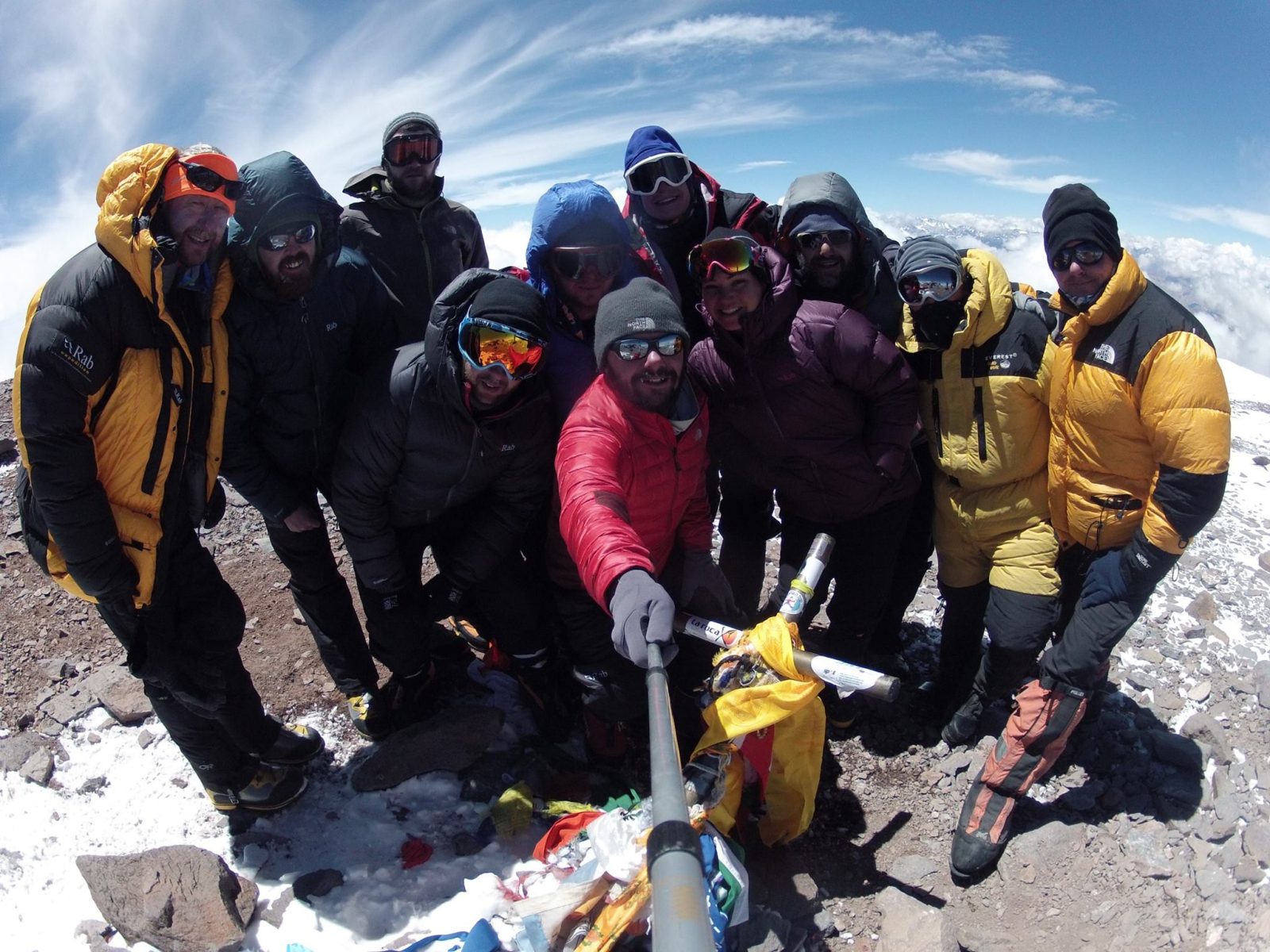
Mount Aconcagua Trip Review
January 2016 This year we had a team of twelve clients from four different countries – Iran, Ireland, England, South Africa and Argentina –...
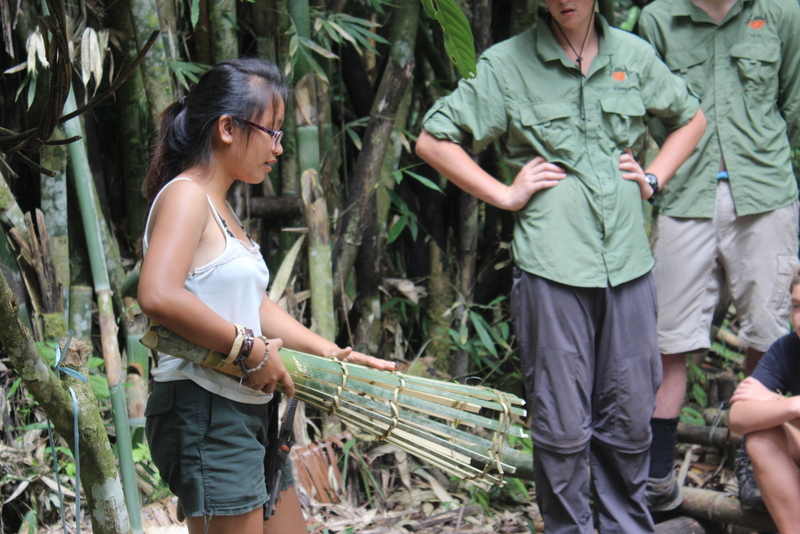
Alcey’s Survival Skills Course at Lupa Masa Jungle Camp
SURVIVAL SKILLS COURSE AT LUPA MASA JUNGLE CAMP | ADVENTURE ALTERNATIVE In celebration of International Rural Women’s Day, we’re talking...